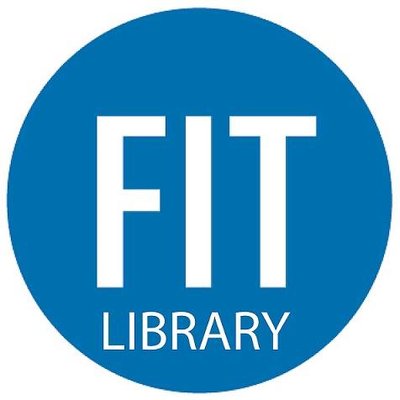THE MEANING AND CHARACTERISTICS OF ISLAM IN THE QUR'AN
DOI:
https://doi.org/10.61841/ryztef43Keywords:
Meaning and characteristics, islam in the qur'anAbstract
Islam contain the meaning of submissiveness and total surrender to Allah SWT and to all His rules that have been revealed to His chosen Prophet, Muhammad (PBUH). Islam is a religion of nature, because Islam is something that is inherent in human beings and has been brought from birth through the nature of Allah’s creation, means that humans from the beginning have a religious instinct of monotheism (tawheed). Islam in accordance with its characteristics, is like a perfect building with a strong foundation of faith and pillar joints in the form of worship to Allah SWT and beautified with noble morals. While the regulations in the Shari'ah function to strengthen the building. While true da'wah and jihad are the fences which guard against the damage done by the enemies of Islam. Islam pays attention to worldly and ukhrawi balance. Islam describes a wholeness and unity in all aspects. Paying attention to peace, optimism in achieving happiness in life, managing personal life, family, society, country and the world as a whole. Set all the creations of Allah SWT in this nature to return to His law. Islam is the eternal religion of Allah SWT that was revealed to the Prophet Muhammad (PBUH). All previous celestial teachings are the unity of the divine teaching in various forms which are constantly updated in accordance with the development of the times, the world, humans, and the demands of preaching at that time. The teachings of Islam brought by the Prophet Muhammad (PBUH) is the last phase as well as the peak of all celestial teachings revealed on the face of the earth (Surah Al Baqarah/2: 132; Surah Al-Ahzab: 40; Al Maidah/5: 3).
Downloads
References
Muhammad Syafiq Gharbal, Al-Mausu’ah al-Arabiyyah al-Muyassarah, (Mesir: Dar al-Qadr, 1953), hal. 155. Al-Qur’an Al-Karim
Al Hadits Al-Nabawiyah
Abdalati, Hammudah, Islam in Focus, (Aligarh: Crescent Publishing Company, 1975)
Abduh, Muhammad, Tafsir al-Manar, (Bairut: Dar al-Fikr, tth. Cet. 2)
Al-Alusi, Ruh al-Ma'ani fi Tafsir Al-Qur'an wa Sab'u al-Matsani, (Bairut: Dar Ihya al-Turats al-Arabi, tth)
Ali, Muhammad, Al-Islam Din al-Insaniyyah, (Kairo: Dar al-Mishriah, 1978. Cet. II)
Al-Ansari, Ibn Manzur, Lisan al-Arab, (Mesir: Dar al-Ma'arif, tth)
Al-Aqqad, Abbas, Ma yuqal 'an al-Islam, (Mesir: Kitab al-Hilal, 1966)
Al-Asfahani, al-Raghib, Abu al Qasim al-Husain bin Muhammad, al Mufaradat fi Gharib Al-Qur'an, Edisi Sayyid alKaylani, (Mesir: Mustafa al-Bab al-Halabi, tth)
Audah, Abdul Kadir, Islam Pemeluk dan Ulamanya, Makalah Seminar International Islamic Federation of Student
Organizations, (IIFSO), 1970
Al-Azhari, Muhammad bin Ahmad, Tahdzib al-Lughah, (Mesir: al-Muassasat al Mishriyyah al-Ammat, 1964)
Al-Baidhawi, Nasir al Din Abu al-Khair 'Abd Allah bin Umar, Anwar al Tanzil wa al-Asrar al-Ta'wil, Tafsir alBaidhawi, (Mesir: Maktabah Musthafa al-Halabi, 1388 H/1968 M. Cet. II)
Al-Baki, Muhammad, al-Islam fi Hayat al-Muslim, (Mesir: Dar al-Fikr, 1970)
Al-Baqi, Muhammad Fu'ad 'Abd. Al-Mu'jam al-Mufahras li Al-Faz Al-Qur'an al-Karim, (Beirut, Dar al-Fikr, 1981)
Al-Bukhari, Abu 'Abdu Allah Muhammad bin Ismail bin Ibrahim bin Al-Mughirah bin Yardizbah. Shahih al-Bukhari,
(Makkah: Maktabah al-'Ilm, tth)
Al-Dzahabi, Muhammad Husain, al-Tafsir wa al-Mufassirun, 1976. Cet. II)
Al-Farmawy, 'Abd al-Hayy, al-Bidayat fi al-Tafsir al-Maudhu'i, (Kairo: Al-Hadharah al-'Arabiyah, 1977. Cet. II)
Hanbal, Ahmad Ibn, Musnad Al-Imam Ahmad bin Hanbal, Juz I, (Bairut: Al-Maktab al-Islami, 1405 H/1980 M. Cet.
V)
Al-Husaini, Abu Farhah, al-Futuhat al-Rabbabiyyah fi al-Tafsir al-Maudhu'i li al-Ayat Al-Qur'aniyah, (Kairo: Dar alThaba'ah al-Muhammadiyah, 1390 H/1979 M. Cet. I)
Ibn Anas, Malik, Al-Muwatha', edisi Fu'ad Abd al-Baqi, (tp, tth)
Ibn Hisyam, Al-Sirah al-Nabawiyah, Mesir: Mustafa al-Babi al-Halabi, 1375 H/1995 M. Cet. II)
Ibn Katsir, al Hafiz 'Imad al-Dien Abu al-Fida Ismail, Tafsir Al-Qur'an al 'Azhim, (Bairut: Dar al-Ma'rifah, 1975)
Ibn Majah, Sunan Ibn Majah, Edisi Fu'ad Abd al-Baqi, (Mesir: Isa al-Bab al-Halabi, 1959)
Lajnah min al-'Ulama', Al-Tafsir al-Waith li-Al-Qur'an al-Karim, (Kairo: Majma' al-Buhuts al-Islamiyyah al-Azhar,
1394 H/1979 M. Cet. I)
Madjid, Nurcholish, Islam Doktrin dan Peradaban (Sebuah Telaah Kritis tentang Masalah Keimanan, Kemanusiaan,
dan Kemodernan), (Jakarta: Yayasan Wakaf Paramadina, 1995. Cet. III)
Al-Maraghi, Ahmad Mustafa, Tafsir al-Maraghi, (Beirut: Dar Ihya' Al-Tarats al-'Arabi, 1985)
Al-Nawawi, Syarh Shahih Muslim, (Mesir, tp, 1924)
Al-Qardhawi, Yusuf, Al-Iman wa Al-Hayah, (Beirut: Mu'assah al-Risalat, 1399 H/1979 M)
Al-Razi, Muhammad, Tafsir Al-Fahr al Razi, (Mesir: Dar al Fikr, cet. ke-3, 1405 H/1985 M)
Shihab, M Quraish, Metode Penyusunan Tafsir yang berorientasi pada Sastra dan Kemasyarakatan, (Ujung Pandang:
IAIN, 1984)
---------, Membumikan Al-Qur'an, (Bandung: Mizan, 1992)
Yusuf Musa, Islam: Suatu Kajian Komprehensif, (Jakarta: Rajawali Pers, 1988)
Published
Issue
Section
License
Copyright (c) 2020 AUTHOR

This work is licensed under a Creative Commons Attribution 4.0 International License.
You are free to:
- Share — copy and redistribute the material in any medium or format for any purpose, even commercially.
- Adapt — remix, transform, and build upon the material for any purpose, even commercially.
- The licensor cannot revoke these freedoms as long as you follow the license terms.
Under the following terms:
- Attribution — You must give appropriate credit , provide a link to the license, and indicate if changes were made . You may do so in any reasonable manner, but not in any way that suggests the licensor endorses you or your use.
- No additional restrictions — You may not apply legal terms or technological measures that legally restrict others from doing anything the license permits.
Notices:
You do not have to comply with the license for elements of the material in the public domain or where your use is permitted by an applicable exception or limitation .
No warranties are given. The license may not give you all of the permissions necessary for your intended use. For example, other rights such as publicity, privacy, or moral rights may limit how you use the material.
















